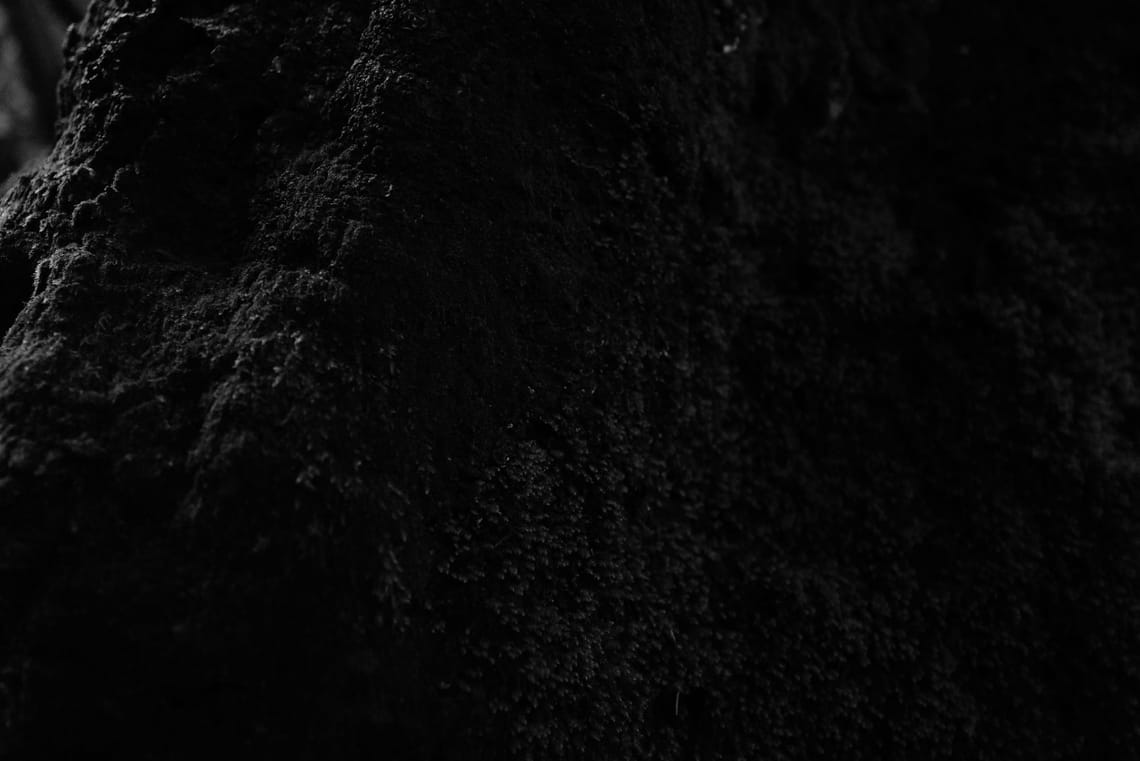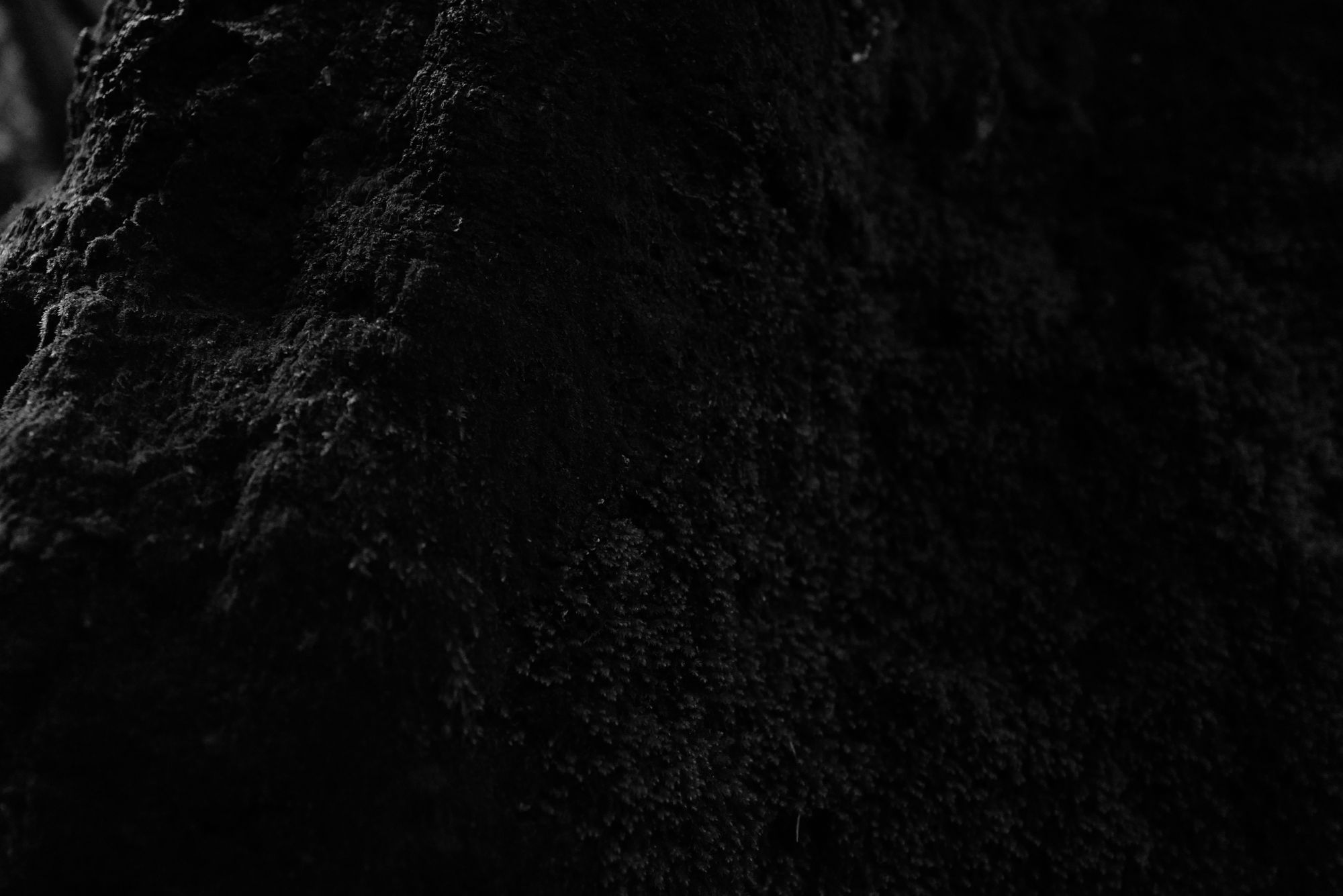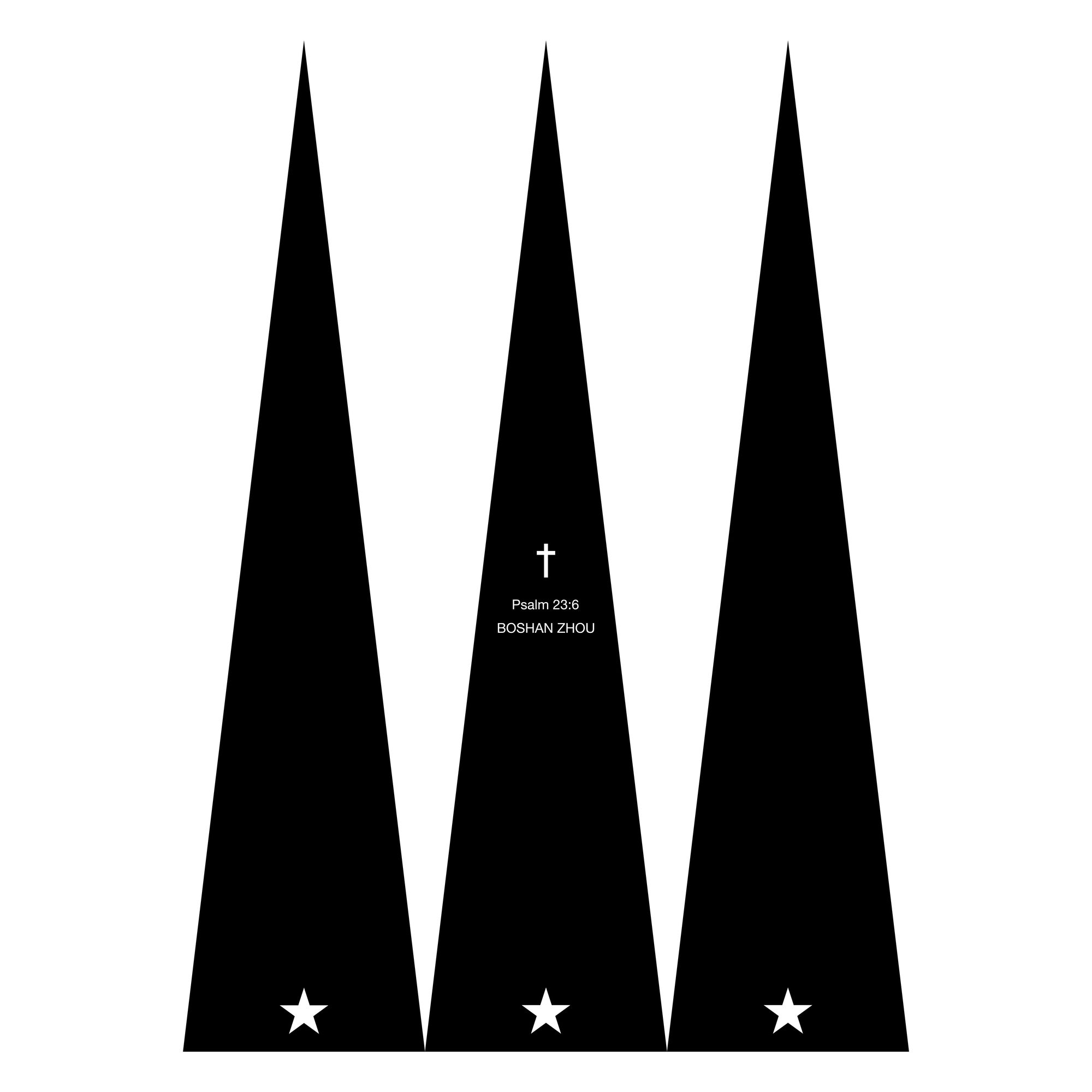
Genesis 37
标题:Genesis 37
年份:2020
尺寸:47.28 x 70.85 cm
Title: Genesis 37
Year: 2020
Dimension: 47.28 x 70.85 cm

「Genesis」系列作品,一共五十幅,对应《圣经》创世纪的五十章。
The "Genesis" series consists of 50 works, corresponding to the 50 chapters of the Bible's Genesis.
37 / 50.
37:1 雅各住在他父亲寄居的地方,就是迦南地。37:2 雅各的历史记在下面:约瑟十七岁的时候,与他的哥哥们一同牧羊。他是个孩童,与他父亲的妾,辟拉和悉帕的众子,常在一起。约瑟把他们的恶行报告给父亲。37:3 以色列爱约瑟过于爱其他的儿子,因为约瑟是他年老时生的。他给约瑟做了一件彩色长衣。37:4 约瑟的哥哥们见父亲爱约瑟过于爱他们,就恨约瑟,不能与他和和气气地说话。37:5 约瑟作了一个梦,把梦告诉哥哥们,他们就越发恨他。37:6 约瑟对他们说:“请听我所作的这个梦:37:7 我们正在田间捆麦子,我的麦捆忽然站立起来,你们的麦捆都来围着我的下拜。”37:8 他的哥哥们对他说:“你真的要作我们的王吗?真的要管辖我们吗?”他们就为了约瑟的梦和他的话,越发恨他。37:9 后来约瑟又作了一个梦,也把梦向哥哥们述说了。他说:“我又作了一个梦,我梦见太阳、月亮和十一颗星向我下拜。”37:10 约瑟把梦向他父亲和哥哥们述说了,他父亲就斥责他,说:“你所作的这梦是甚么梦呢?我和你母亲,以及你的兄弟,真的要来俯伏在地向你下拜吗?”37:11 他哥哥们都嫉妒他,他父亲却把这事记在心里。37:12 约瑟的哥哥们去了示剑,牧放他们父亲的羊群。37:13 以色列对约瑟说:“你的哥哥们不是在示剑牧放羊群吗?来吧,我要派你到他们那里去。”约瑟回答他:“我在这里。”37:14 以色列对他说:“你去看看你的哥哥们是不是平安,羊群是不是平安,就回来告诉我。”于是打发他离开希伯仑谷,他就到示剑去了。37:15 有人遇见约瑟在田间迷了路,就问他说:“你找甚么?”37:16 他回答:“我正在找我的哥哥们,请你告诉我他们在哪里牧放羊群。”37:17 那人说:“他们已经离开了这里;我听见他们说:‘我们要到多坍去。’”于是约瑟去追寻哥哥们,结果在多坍找到了他们。37:18 他们远远就看见了他;趁他还没有走近,大家就谋害他,要把他杀死。37:19 他们彼此说:“看哪,那作梦的人来了。37:20 来吧,我们把他杀了,丢在一个枯井里,就说有猛兽把他吃了。我们要看看他的梦将来要怎么样。”37:21 流本听见了,要救约瑟脱离他们的手。他说:“我们不可取他的性命。”37:22 流本又对他们说:“不可流他的血,可以把他丢在这旷野的枯井里,不可下手害他。”流本的意思是要救他脱离他们的手,把他带回去给他的父亲。37:23 约瑟到了哥哥们那里,他们就脱去他的外衣,就是他穿在身上的那件彩衣。37:24 他们拿住约瑟,把他丢在枯井里。那井是空的,里面没有水。37:25 他们坐下吃饭,举目观看,见有一群以实玛利人从基列来。他们的骆驼载着香料、乳香和没药,要带下埃及去。37:26 犹大对他的众兄弟说:“我们杀了我们的兄弟,把他的血隐藏起来,究竟有甚么益处呢?37:27 我们不如把他卖给以实玛利人,不要下手害他,因为他是我们的兄弟,我们的骨肉。”众兄弟就听从了他。37:28 有些米甸的商人经过那里,约瑟的哥哥们就把约瑟从枯井里拉上来,以二十块银子把他卖给以实玛利人。以实玛利人就把约瑟带到埃及去了。37:29 流本回到枯井那里,见约瑟不在井里,就撕裂自己的衣服。37:30 他回到兄弟们那里去,说:“孩子不见了,我可到哪里去呢?”37:31 于是,他们宰了一只公山羊,把约瑟的长衣蘸在血里;37:32 然后打发人把彩衣送到他们父亲那里,说:“这是我们找到的。请你认一认,是你儿子的长衣不是?”37:33 他认出这件长衣,就说:“是我儿子的长衣,有猛兽把他吃了。约瑟真的被撕碎了。”37:34 雅各就撕裂自己的衣服,腰束麻布,为他儿子哀悼了很多日子。37:35 他所有的儿女都起来安慰他,他却不肯接受他们的安慰,说:“我要悲悲哀哀地下到阴间,到我的儿子那里去。”约瑟的父亲就为他哀哭。37:36 米甸人后来把约瑟卖到埃及去,卖给法老的一个臣宰,军长波提乏。
创世记 37
37:1 Jacob lived in the land where his father had stayed, the land of Canaan.37:2 This is the account of Jacob’s family line. Joseph, a young man of seventeen, was tending the flocks with his brothers, the sons of Bilhah and the sons of Zilpah, his father’s wives, and he brought their father a bad report about them.37:3 Now Israel loved Joseph more than any of his other sons, because he had been born to him in his old age; and he made an ornate(The meaning of the Hebrew for this word is uncertain; also in verses 23 and 32.) robe for him.37:4 When his brothers saw that their father loved him more than any of them, they hated him and could not speak a kind word to him.37:5 Joseph had a dream, and when he told it to his brothers, they hated him all the more.37:6 He said to them, “Listen to this dream I had:37:7 We were binding sheaves of grain out in the field when suddenly my sheaf rose and stood upright, while your sheaves gathered around mine and bowed down to it.”37:8 His brothers said to him, “Do you intend to reign over us? Will you actually rule us?” And they hated him all the more because of his dream and what he had said.37:9 Then he had another dream, and he told it to his brothers. “Listen,” he said, “I had another dream, and this time the sun and moon and eleven stars were bowing down to me.”37:10 When he told his father as well as his brothers, his father rebuked him and said, “What is this dream you had? Will your mother and I and your brothers actually come and bow down to the ground before you?”37:11 His brothers were jealous of him, but his father kept the matter in mind.37:12 Now his brothers had gone to graze their father’s flocks near Shechem,37:13 and Israel said to Joseph, “As you know, your brothers are grazing the flocks near Shechem. Come, I am going to send you to them.” “Very well,” he replied.37:14 So he said to him, “Go and see if all is well with your brothers and with the flocks, and bring word back to me.” Then he sent him off from the Valley of Hebron. When Joseph arrived at Shechem,37:15 a man found him wandering around in the fields and asked him, “What are you looking for?”37:16 He replied, “I’m looking for my brothers. Can you tell me where they are grazing their flocks?”37:17 “They have moved on from here,” the man answered. “I heard them say, ‘Let’s go to Dothan.’ ” So Joseph went after his brothers and found them near Dothan.37:18 But they saw him in the distance, and before he reached them, they plotted to kill him.37:19 “Here comes that dreamer!” they said to each other.37:20 “Come now, let’s kill him and throw him into one of these cisterns and say that a ferocious animal devoured him. Then we’ll see what comes of his dreams.”37:21 When Reuben heard this, he tried to rescue him from their hands. “Let’s not take his life,” he said.37:22 “Don’t shed any blood. Throw him into this cistern here in the wilderness, but don’t lay a hand on him.” Reuben said this to rescue him from them and take him back to his father.37:23 So when Joseph came to his brothers, they stripped him of his robe—the ornate robe he was wearing—37:24 and they took him and threw him into the cistern. The cistern was empty; there was no water in it.37:25 As they sat down to eat their meal, they looked up and saw a caravan of Ishmaelites coming from Gilead. Their camels were loaded with spices, balm and myrrh, and they were on their way to take them down to Egypt.37:26 Judah said to his brothers, “What will we gain if we kill our brother and cover up his blood?37:27 Come, let’s sell him to the Ishmaelites and not lay our hands on him; after all, he is our brother, our own flesh and blood.” His brothers agreed.37:28 So when the Midianite merchants came by, his brothers pulled Joseph up out of the cistern and sold him for twenty shekels(That is, about 8 ounces or about 230 grams) of silver to the Ishmaelites, who took him to Egypt.37:29 When Reuben returned to the cistern and saw that Joseph was not there, he tore his clothes.37:30 He went back to his brothers and said, “The boy isn’t there! Where can I turn now?”37:31 Then they got Joseph’s robe, slaughtered a goat and dipped the robe in the blood.37:32 They took the ornate robe back to their father and said, “We found this. Examine it to see whether it is your son’s robe.”37:33 He recognized it and said, “It is my son’s robe! Some ferocious animal has devoured him. Joseph has surely been torn to pieces.”37:34 Then Jacob tore his clothes, put on sackcloth and mourned for his son many days.37:35 All his sons and daughters came to comfort him, but he refused to be comforted. “No,” he said, “I will continue to mourn until I join my son in the grave.” So his father wept for him.37:36 Meanwhile, the Midianites(Samaritan Pentateuch, Septuagint, Vulgate and Syriac (see also verse 28); Masoretic Text Medanites) sold Joseph in Egypt to Potiphar, one of Pharaoh’s officials, the captain of the guard.
Genesis 37
在科学可以近乎解释一切的这个时代,我们已经倾向于习惯这个世界发生的一切和周围的一切,无论它有多不可思议,甚至习以为常到不再思考它的不可思议性。
宇宙为何以及如何诞生?为何宇宙大爆炸有一个从无到有的“开始”?为何生命会从“无”诞生到“有”?为何会有复杂、精密的生命的存在?为什么人体内的 DNA 和细胞像微观世界一样复杂而精确,却以高度有序的方式完成其工作,就像被设计和编程的另一个宇宙一样?
无论是哈雷彗星的椭圆运行轨道,笛卡尔浪漫的心形函数,人体曼妙的黄金分割,天空飘零的六边雪花,甚至一片落叶飘落,都是一段美妙的函数方程。大如宇宙,小如雪花,都能在这些公式之中看到神性的秩序。
爆炸带来的皆是毁灭。最初,什么都没有,“大爆炸”却产生了时间、物质和空间,没有逐步的生成,没有过渡的形态,只是一种二元翻转,从“不存在”到“存在”。宇宙复杂且广阔,却能用高度有序的数学公式来描述,诞生了秩序甚至生命。仅凭这一点就令人难以置信,足以使人们终生寻求真理。
“存在可以从不存在而来”的这种“自然发生论”观念的证据何在?怎么从非生命体获得生命?为何我们还是不知道如何切实地从死物质创造出生命,却坦然地默认生命可以从非生命诞生?
宇宙背后的真理如此令人惊叹又神秘,生命是如此不可思议,我们却如此地习以为常,甚至不再感叹这一切的神奇。
「自从造天地以来,神的永能和神性是明明可知的,虽是眼不能见,但藉着所造之物就可以晓得,叫人无可推诿。」罗马书 1:20
“科学的尽头是神学。” 我认为,尽管科学有其局限性,而神学提供了答案,但神学并不是要解释科学的不足,仅靠科学也无法触及神学的核心。然而,科学和神学并非对立面,也并不妨碍我们在探索求知的路上保留着一颗敬畏之心。
「诸天述说神的荣耀,穹苍传扬祂的手段。」诗篇 19:1
大自然的壮丽景色,很容易让人心生敬畏,但是我发现即便日常最被人忽视的细微之景,也是“穹苍”的一部分。从“大”可以很自然地想到“大”,但如果从“小”也能看到“大”,“大”则更显荣耀。
在这个系列,我不是在试图回答上述问题或者阐述我对上述问题的世界观和立场,我只是在一些我们习以为常甚至忽略的细微场景中看到了“创造者”留下的“痕迹”和“威严”。
因此,我制定了一条规则:试图通过被忽视的日常细微之景,从敬畏和好奇中看到“大”与“小”之间的关系,以小尺度为窗口,探索和思考宇宙,生命,永恒与创造之间的关系。
In an era where science can nearly explain everything, we have become accustomed to everything that happens in this world and everything around us, no matter how incredible it is, or even accustomed to stop thinking about its incredibility.
Why and how did the universe come from? Why does the universe's big bang have a "start" from nothing? Why is life born from "nothing" to "life"? Why is there complex, sophisticated creatures? Why is the DNA and cells in our body as complex and precise as a microcosm, but complete its work in a highly orderly manner, just like another universe designed and programmed?
Whether it is the elliptical orbit of Comet Halley, the romantic heart-shaped function of Descartes, the graceful golden section of the human body, the Six-sided snowflake falling from the sky, or even a leaf falling, all are wonderful function equations. As big as the universe and as small as snowflakes, divine order can be seen in these formulas.
The explosion brought about destruction. Originally, there was nothing, but the "Big Bang" produced time, matter, and space. There was no gradual development, no transitional forms, but a binary flip, from "non-existence" to "existence." The universe is complex and vast, but it can be described by highly ordered mathematical formulas, gave birth to order and even life. This alone is unbelievable enough to let people explore the truth throughout their lives.
What is the evidence for the "abiogenesis", which is "something can come from nothing"? How to get life from non-life? Why do we still not know how to actually create life from dead stuff, but frankly assume that life can be born from non-life?
The truth behind the universe is so incredible and mysterious, life is so incredible, we are so accustomed to it, we are no longer lamenting the incredibility of all this.
"For since the creation of the world God’s invisible qualities—his eternal power and divine nature—have been clearly seen, being understood from what has been made, so that people are without excuse." Romans 1:20
"The end of science is theology." I believe that although science has its limitations and theology provides the answer, theology is not to explain the deficiency of science, and science alone cannot reach the core of theology. However, science and theology are not opposites, and they do not prevent us from remaining awed on the road to exploring knowledge.
"The heavens declare the glory of God; the skies proclaim the work of his hands." Psalm 19:1
The magnificent scenery of nature can easily make people awe-inspiring, but I find that even the most slight sceneries that are most overlooked in daily life are also part of the "skies". You can think of "big" naturally from "big", but if you can also see "big" from "small", "big" is even more glorious.
In this series, I am not trying to answer the above questions or to express my views and positions on the above questions. I just saw the "traces" and "majesty" left by the "creator" in some slight scenes that we are accustomed to and even ignore.
Therefore, I created a rule: trying to see "big" from "small" - with awe and curiosity, through daily neglected slight scenes, with “small scale” as the window, to explore and think about the relationship between the universe, life, eternity and creation.
- Boshan Zhou
版权所有,未经许可,请勿擅自使用此图,侵权必究。
All rights reserved; those responsible for unauthorized usage and reproduction will be prosecuted.
©️ Boshan Zhou.
